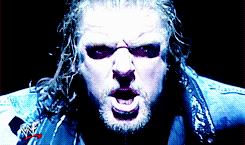UFC women’s bantamweight champion Amanda Nunes and strawweight Nina Ansaroff will be joining Mark De La Rosa and Montana De La Rosa as the second married UFC couple sometime in the near future, as the couple announced their engagement Saturday on Instagram:
Ansaroff has said yes and the wedding is on. Nunes is the first openly gay fighter to become UFC champion, and now she will be one half of the first gay married couple in UFC history.
Speaking to FloCombat last year, Nina Ansaroff opened up about her relationship with Amanda Nunes, saying, “We enjoy being around each other, and we are also best friends. We go fishing together, and we go training together ,and sometimes we go a little heavier in the sparring session and then we just smile after. It’s not that bad.
The best thing about it is, is that it’s not something that’s ever really talked about. It’s kinda like you know what’s up, I know what’s up. We get it out in our training and then it’s never left the cage and it’s never left the gym. That’s it. It’s amazing.”
Nunes agrees, crediting her relationship with Ansaroff for making her a better fighter:
“For sure, being in a relationship with someone who understands what is going on helps my fighting,” Nunes told USA TODAY Sports at the close of 2016. “But on the other side, because we are fighters helps to make the relationship stronger. We understand the work that we put in and we respect each other. We met through fighting, and it brings us closer. If I am cutting weight, she helps. This has helped make me champion.
“It helps me to be calm because I know Nina understands. “She knows everything that goes into being a fighter, so I don’t have to explain why I am doing this or that. Sometimes getting ready to fight is a difficult time, but she makes it easy for me, and I try to do the same for her.”
Amanda Nunes and Nina Ansaroff have been together for over five years now, and being an openly gay lesbian couple in what is still a male-dominated sport has given the couple some life lessons along the way:
“It actually taught us something as well,” Ansaroff said. “We never thought it was something that needed to be recognized. When we started getting emails from people who were having difficulties and struggling with their sexuality, it made us realize that maybe we should be a little bit stronger about this, to help these people.”
Results 1 to 1 of 1
-
08-19-2018, 04:32 PM #1
 Amanda Nunes and Nina Ansaroff Get Engaged
Amanda Nunes and Nina Ansaroff Get Engaged


BOW DOWN TO THE KING

***GAME OVER!***









 Reply With Quote
Reply With Quote